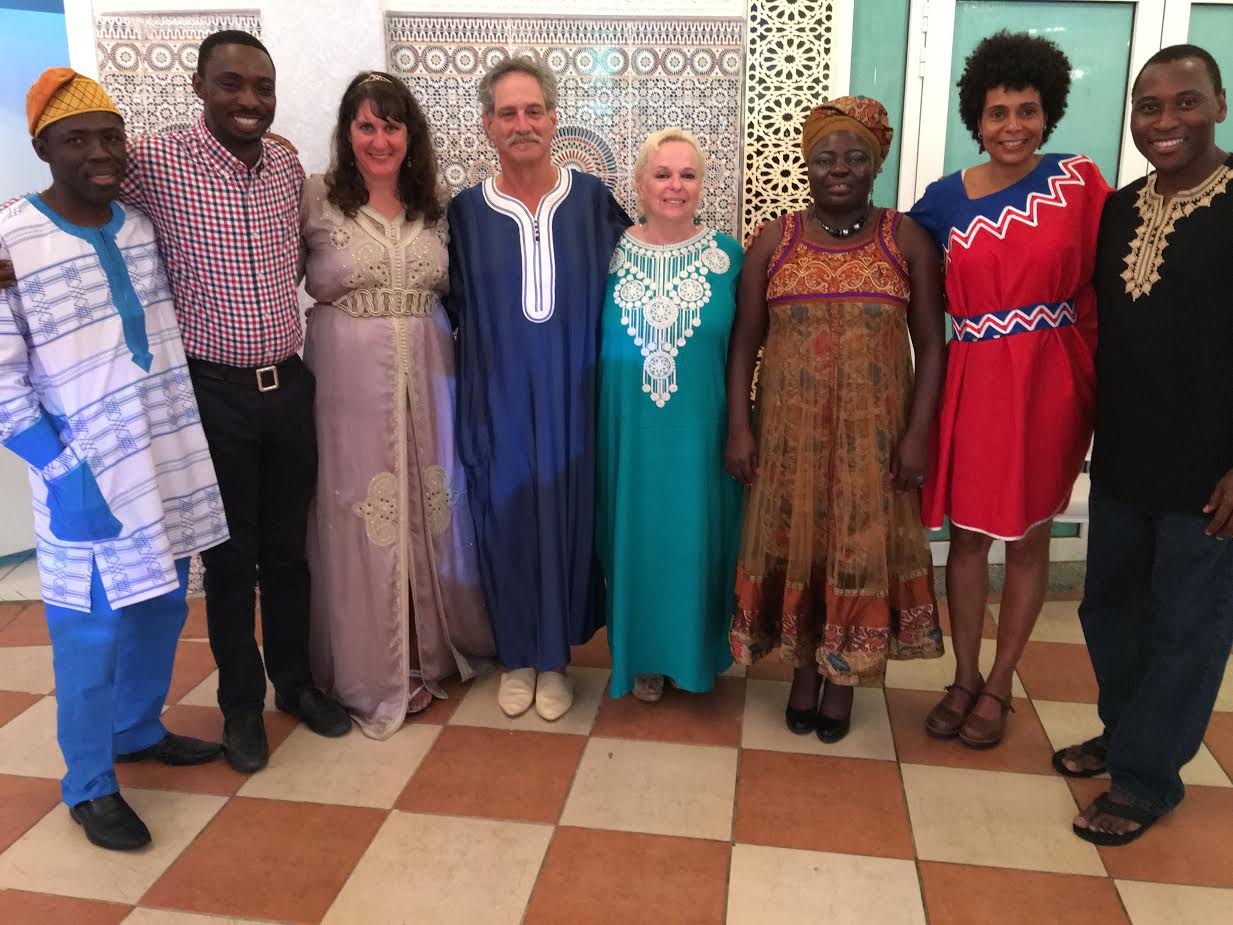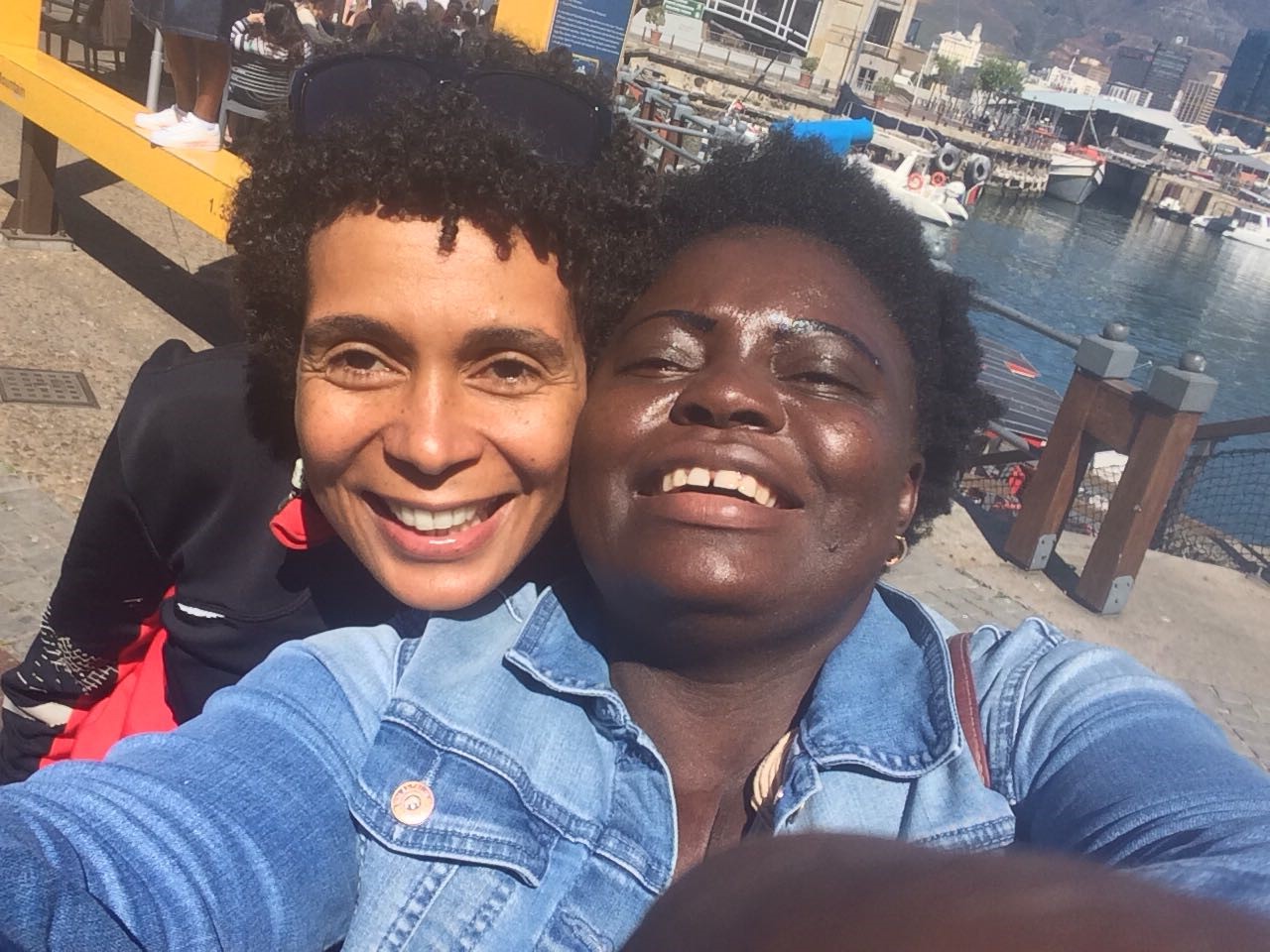New Board members
SCB Africa Section is excited to welcome five new members on to its board. They include:
- President-Elect: Israel Borokini
- Financial Monitoring & Evaluation Officer: Michelle Fasona
- Education & Science Officer: Margaret Awuor Owuor
- Member-at-large 1: Janette Wallis
- Member-at-large 2: Badru Mugerwa
Israel also retains his existing office as the Section Information Officer. Martin Nganje, the Africa Section President, welcomes them with this message:
"I am extremely excited to welcome you on board. With your integration into the Section’s Board, I see a strong group of extremely qualified individuals who can move forward the Africa Section’s agenda."
The Section board also expresses deep gratitude to Mr. Stephen Awoyemi, Mr. Mike Uwagbae, Dr. Ron Abrams, Dr. Jennifer K O’Leary, and Dr. Tuyeni Mwampamba for their selfless service to the Section, as they exit the board.
 |
|
The Africa Section board at ACCB 2016, El Jadida, Morocco. |
Willing to serve?
Apart from Section board positions, there are several other ways to serve the SCB Africa Section. This include the following:
- SCB Chapters: start a new Chapter or join an existing Chapter in your country or area. SCB Chapters are closest to the grassroots and a very good way to bring the benefits of SCB to members and the public. If you have questions about this, kindly contact Dr. Fola Babalola or Israel Borokini.
- Committees: As the new board takes on momentum, there will be the need to get more people to help fulfill Section goals and operation plan. This is best done through committees. Therefore, the Section board is asking for volunteers in the following committees:
- Information committee
- Education and Science committee
- Young Women in Conservation Biology (YWCB) Committee. Please email Dr. Fatsuma Olaleru for more information.
Social media platform
Follow us!! Did you know that the Africa Section has a Facebook page? Follow us!
African Conservation Telegraph, ACT
ACT is calling for contributions for the next special issue, which focuses on “Antelopes of Africa”. Kindly send your contributions to Dr. Murali Pai. You can also follow ACT on their webpage, Facebook page or Twitter page
NEW Africa Section Project: Globalization effects on biodiversity conservation in Africa
Globalization describes the process in which national and regional economies, societies and cultures become increasingly interconnected through a global network of trade, communication, immigration and transportation (Kull, Ibrahim & Meredith, 2007; Ibrahim, 2013). Its effects on biodiversity conservation in Africa are complex and difficult to disaggregate from the many other processes occurring simultaneously. The invisible hand of globalization, however, can be seen in the ease with which a buyer in Thailand can contact a poacher in Tanzania for an order of elephant tusks, to the multiple transportation routes that the order can take to get to Thailand, to the crowdsourcing a conservation organization can do to purchase equipment and pay staff to vamp up its national park patrols. It manifests itself in how tourist visitations in the Global South fall in response to economic recessions in the Global North, and in how new terminologies and buzzwords influence conservation spending. Arguably, one could find a link to globalization in almost every aspect of conservation in Africa. The Africa Section has decided to spend the next 12 months exploring how globalization might be affecting conservation on the continent.
We invite anyone who would like to begin exploring globalization in their study systems to please get in touch with Drs. Mwampamba and O’Leary. The idea is to create a cohort of conservation biologists who are willing to spend the next 12 months exploring how globalization might play out in their conservation work or research. We would like to link this project to the Section’s Mentorship Program such that a Mentor-Mentee(s) pair or team might decide to explore the topic together. Participation is open, however, beyond the mentorship program. From this, we hope a set of sub-themes on globalization effects will emerge that could lead to data collection, comparative studies, collaborations, joint papers, and perhaps, enough manuscripts to be published as a special issue in Diversity journal. To stimulate the interactions, we’ll organize a list of key literature on globalization and organize some webinars in which invited speakers can share their work and experiences on the topic. We are also open to other ideas.
Please contact us if you would like to participate in this project. Indicate if you would also like to be a mentor or a mentee. If you have expertise on the topic, please volunteer to give a talk in one of our webinars.
References
Kull, C.A., Ibrahim, C.K. & Meredith, T.C. (2007) Tropical forest transitions and globalization: neo-liberalism, migration, tourism, and international conservation agendas. Soc. Nat. Res. 20, 723–737.
Ibrahim, A.A. (2013) The impact of globalization on Africa. Int. J. Hum. Soc. Sci. 3, 85–93.
African section members active in Global and Regional IPBES Assessments of Biodiversity and Ecosystem Services
The African Section has been highly involved in The Intergovernmental Science-Policy Platform on Biodiversity and Ecosystem Services (IPBES). Spearheaded by the United Nations, IPBES is an intergovernmental body which assesses the state of biodiversity and of the ecosystem services it provides to society, in response to requests from decision makers. Dr. Benis Egoh, a board member of the African Section has been involved with the African assessment as lead author, while Dr. Tuyeni H. Mwampamba is involved in the global assessment. Several other Section members have been involved as contributing authors in the African assessment which is now concluded. The Assessment Report and Summary for Policy Makers will be presented for approval by the sixth session of the IPBES Plenary (IPBES-6) in Medellin, Colombia in March 2018.
Beyond the assessments, the Section was the first in hosting an IPBES workshop to evaluate the potential implementation of the IPBES values guide on the African continent. This workshop was held during the Section’s 3rd Regional Africa Congress for Conservation Biology (ACCB), which took place in El Jadida, Morocco, in 2016. The African Section remains active in the IPBES spaces and will be involved in any plan to implement results from the assessment after the reports are released. It is expected that findings from the African assessment will shape research and policies in biodiversity conservation in Africa that delivers multiple ecosystem services to local communities on the continent.
For more information about the African Assessment, please contact Dr Benis Egoh. To find out more about IPBES and how you could become involved in numerous ongoing and future assessments, please visit the IPBES website.
 |
|
Tuyeni and Benis at IPBES assessment workshop in South Africa. |
Nigeria SCB Chapter 2018 Biodiversity conference
The Nigerian Chapter of SCB is organizing the 2018 biodiversity conference at University of Uyo, Uyo, Nigeria, themed, “Biodiversity conservation and National Development: potentials and challenges.” The conference will be held between May 6 and 12, 2018. Deadline for submission of full manuscript is on February 15, 2018. For more information, check the website: www.nscbconf2018.wordpress.com or email nscbconf2018@gmail.com.